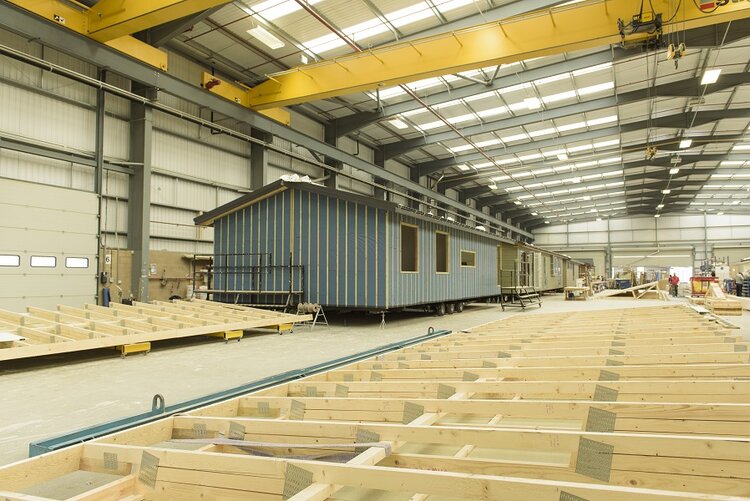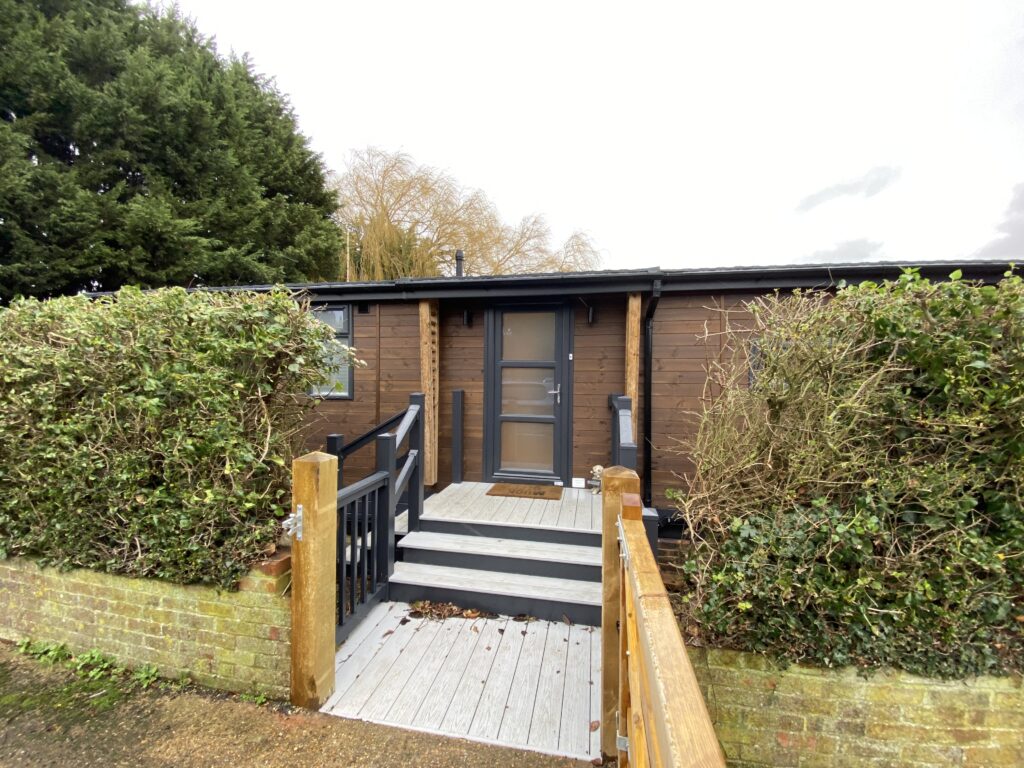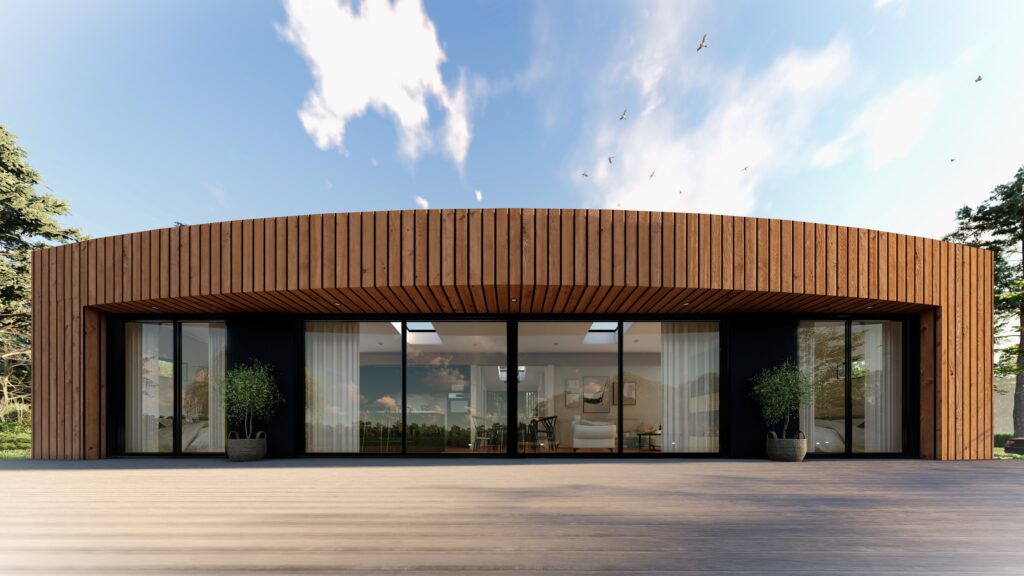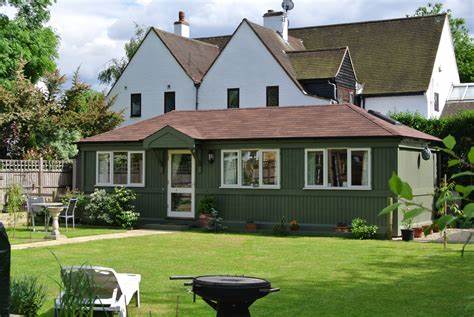Adapting to life with a disability is rarely smooth-sailing, but at Landscape Living we want to try and help make your home as comfortable and usable as possible. 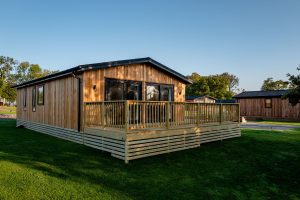
Landscape Living provides homes that can be built for people with disabilities, and we always care to ensure our accommodation works for everyone.
Please see the following adaptations that can be in a disabled access home:
- All of our homes can be adapted for the perfect number of bedrooms and space you require
- Full wet room with seating in the shower
- Lowered units & worktops in the kitchen
- Sliding doors and wide hallways & doorways to allow for a wheelchair
- Low thresholds for easy step free access
- And much much more…..
The beauty of working with Landscape Living off-site construction system is that once the annexe has been built for you in one or two pieces, it can be quickly installed in a matter of hours once it arrives on-site. This makes annexes like this a great solution for families looking to create accommodation for a disabled or ill relative.
We understand that not all disabilities are the same, so we would urge you to call our dedicated team on 0800 246 1252 so we can give you a bespoke quote and we can tailor the home to your or your loved one’s needs.
 Are you caring for a disabled person? Here is a brief guide with some tips for families of people with disabilities.
Are you caring for a disabled person? Here is a brief guide with some tips for families of people with disabilities.These general caregiving tips provide families with information on how to stay healthy and positive. Keep in mind that these tips can be used to address many family issues. Information, support, advocacy, empowerment, care, and balance can be the foundation for a healthy family and are appropriate no matter what the challenge.
Be Informed
Gather information about your family member’s condition, and discuss issues with others involved in the care of your family member. Being informed will help you make more knowledgeable health decisions and improve your understanding about any challenges your family might face.
Notice how others care for the person with special needs. Be aware of signs of mental or physical abuse.
Get Support
Family members and friends can provide support in a variety of ways and oftentimes want to help. Determine if there are big or small things they can do to assist you and your family.
Join a local or online support group. A support group can give you the chance to share information and connect with people who are going through similar experiences. A support group may help combat the isolation and fear you may experience as a caregiver.
Don’t limit your involvement to support groups and associations that focus on a particular need or disability. There are also local and national groups that provide services, recreation, and information for people with disabilities.
Friends, family, healthcare providers, support groups, community services, and counsellors are just a few of the people available to help you and your family.
Be an Advocate
Be an advocate for your family member with a disability. Caregivers who are effective advocates may be more successful at getting better service.
Ask questions. For example, if your family member uses a wheelchair and you want to plan a beach vacation, find out if the beaches are accessible via a car, ramp, portable walkway mat, or other equipment.
Inform other caregivers of any special conditions or circumstances. For example, if your family member has a latex allergy, remind dental or medical staff each time you visit them.
Document the medical history of your family member, and keep this information current.
Make sure your employer understands your circumstances and limitations. Discuss your ability to travel or to work weekends or evenings. Arrange for flexible scheduling when needed.
Become familiar with the Disability Discrimination Act 1995, the Equality Act 2010, and other relevant provisions, such as progress on the Carer’s Leave Bill. Know how and when to apply them to your situation. There is a wealth of support & guidance to be found at www.carersuk.org and other similar websites.
Be Empowering 
Focus on what you and your family member with a disability can do.
Find appropriate milestones and celebrate them.
If someone asks you questions about the family member, let him or her answer when possible. Doing so may help empower the individual to engage with others.
When appropriate, teach your family member to be as independent and self-assured as possible. Always keep health and safety issues in mind.
Take Care of Yourself
Take care of yourself. Caring for a family member with a disability can wear out even the most robust and resilient caregiver. Stay healthy for yourself and those you care for.
Work hard to maintain your personal interests, hobbies, and friendships. Don’t let caregiving consume your entire life. This is not healthy for you or those you care for. Balance is key.
Allow yourself not to be always perfect. Set reasonable expectations to lower stress and make you a more effective caregiver.
Delegate some caregiving tasks to other reliable people.
Take a break. Short breaks, like an evening walk or relaxing bath, are essential. Long breaks are nurturing. Arrange a retreat with friends or get away with a significant other when appropriate.
Don’t ignore signs of illness: if you get sick, see a healthcare provider. Pay attention to your mental and emotional wellbeing as well. Remember, taking good care of yourself can help the person you care for as well. Exercising and eating healthily also are important.
Keep Balance in the Family
Family members with a disability may require extra care and attention. Take time for all family members, taking into account the needs of each individual. For example, it’s important for parents of a child with a disability to also spend time with each other and with any other children they might have.
Consider respite. “Respite” refers to short-term, temporary care provided to people with disabilities so that their families can take a break from the daily routine of caregiving.
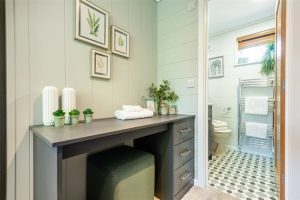 Maintain Proximity and Independence at the Same Time
Maintain Proximity and Independence at the Same Time
Should you decide you require additional accommodation but determine that a care home situation will not meet your needs, our annexe accommodation (or sometimes referred to as “granny annexe”) allows you to keep your family member nearby and yet maintain privacy when they need it.

Our annexe homes offer excellent flexibility, security, comfort and sophistication all in one beautiful package, and include central heating, double glazing, fitted kitchens and spacious lounges. Depending upon how you want to use the annexe, we can guide you in the right direction, ensuring that the home that you choose is perfectly tailored to suit your needs, and we can also assist with planning and delivery.
We can work to your budget, allowing you to decide on how many bedrooms you need based on your budget, and we can assist with the rest; interior fittings, furnishings, carpets and curtains. Landscape Living can advise on them all, guaranteeing that you receive the annexe home that is perfectly suited to your requirements.
There are specific models which are wheelchair friendly. They will have features such as wider access ways throughout the home, wider doors (sometimes sliding), low threshold external doors, low level worktops, portable helper frames, vinyl flooring throughout (with no carpet bars), reinforced hand rails, and full wet shower rooms. If however there are other disabilities with specific requirements we can adapt the home to suit your needs and future proof the home so you will not have to change it going forward.

With our manufacturers’ wealth of knowledge and expertise they have designed homes that will make a huge difference to a person’s ability to maintain a safe and independent lifestyle and enable them to carry out daily activities that may have been affected by various situations such as: frailty, ill health or a severe injury.
If there are any features you would like to include to make life easier for you or a loved one, simply give us a call and we will try to accommodate any request – 0800 246 1252 or CLICK here to email us now

